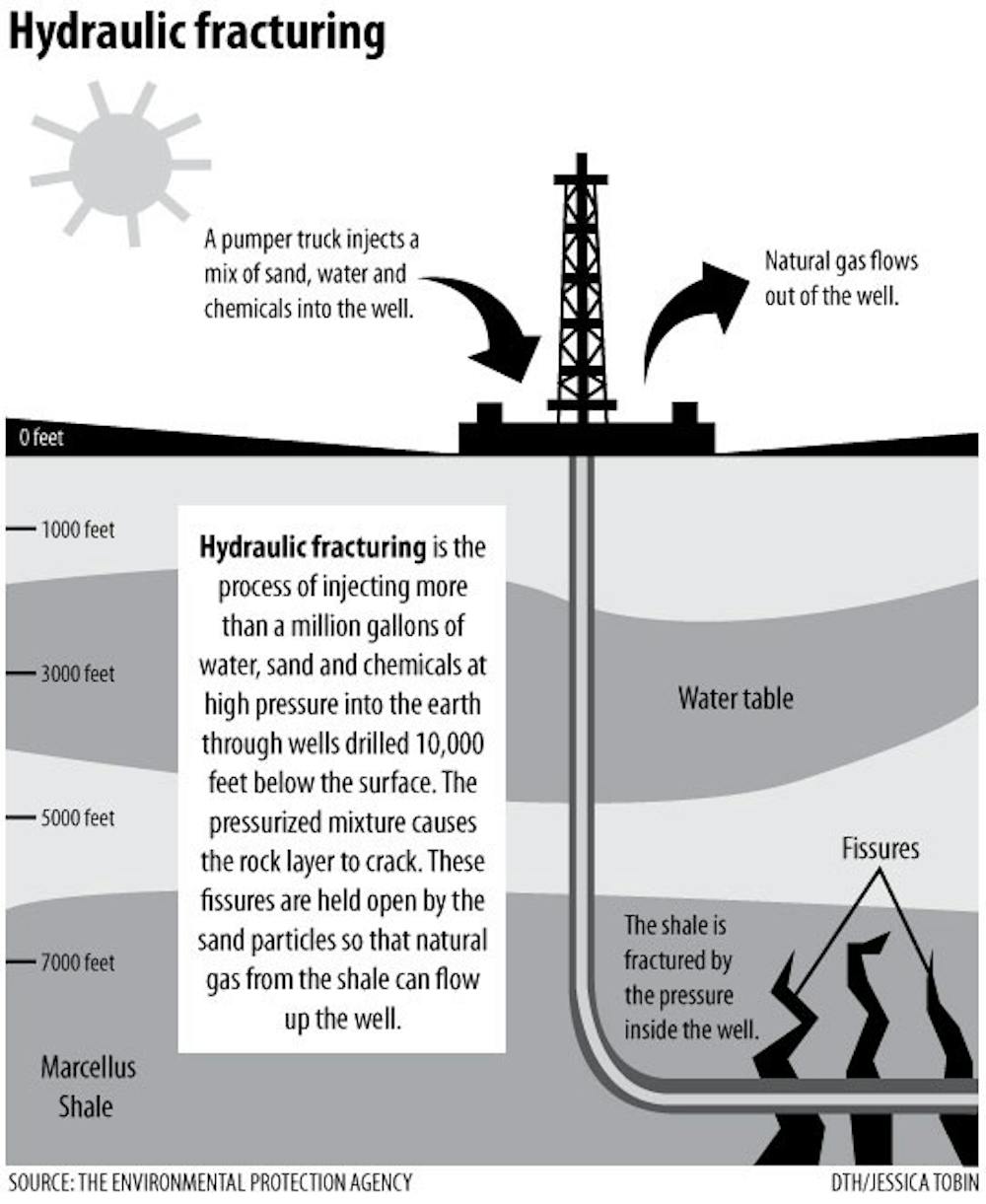A new method of energy gathering is creating friction among legislators and environmental activist in North Carolina.
The state could soon be entering a new era in energy if state legislators override Gov. Bev Perdue’s veto of a bill that would open the state to hydraulic fracturing, also known as “fracking.”
Fracking releases natural gas trapped in rock deep beneath the ground by pumping a highly pressurized water mixture up to thousands of feet beneath the soil to break up the rock and allows natural gas to escape to the surface.
Sen. Tommy Tucker, R-Mecklenburg, sponsored the bill, the Energy Jobs Act, that would open up the state to fracking.
“It is going to create high paying jobs in parts of the state that desperately need it,” Tucker said.
But the bill was vetoed by Perdue in June. The Senate has already overridden the veto, but the House has not.
Tucker said it might take another election cycle before the House can find the votes to overcome the veto.
“I just don’t understand why anyone would want to depend on the Middle East for energy,” he said.
The Senate recently commissioned the N.C. Department of Environment and Natural Resources to conduct a study to examine the potential effects of fracking in the state. The study is expected to be completed in April 2012.



